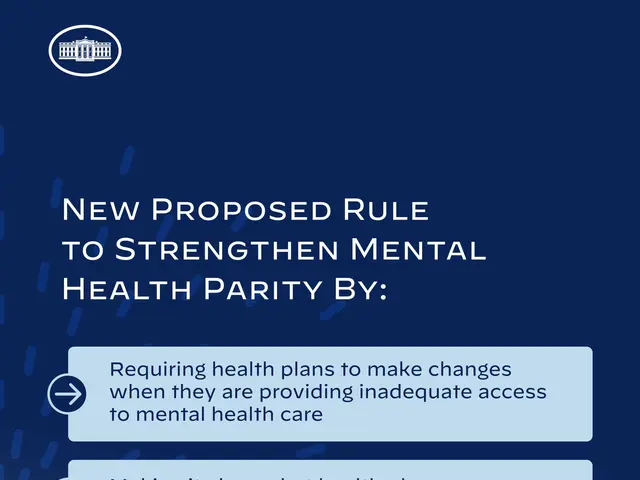FDA Advisory Committee Disseminates False Data Concerning SSRI Intake During Pregnancy, Causing Doctoral Anxiety
The debate surrounding the use of Selective Serotonin Reuptake Inhibitors (SSRIs) — a common class of antidepressants — during pregnancy and the postpartum period is centered around striking a balance between potential risks to the fetus and newborn, and the risks of untreated maternal depression.
Risks associated with SSRIs in pregnancy:
Studies have indicated associations between SSRI use during pregnancy and increased risks such as spontaneous abortion (approximately 1.7-fold), preterm birth, neonatal adaptive syndrome, persistent pulmonary hypertension, and minor increased risks of birth defects, particularly cardiac [1][2]. The chemicals involved in SSRIs, which affect serotonin levels, may interact with fetal organ development (heart, brain, gut), potentially leading to adverse outcomes [1].
However, recent large studies and experts argue that many of these risks are either statistically insignificant or confounded by the effects of maternal depression itself, making it difficult to isolate the effects of SSRIs from the underlying condition [3].
Risks of untreated maternal depression:
Untreated depression in pregnant and postpartum women can lead to serious outcomes such as relapse of mood symptoms, suicide, overdose death, and poor maternal and fetal health [1]. Maternal stress and depression themselves can negatively impact fetal brain development, and treatment with SSRIs may in some cases reduce these negative effects [3].
Positions of doctors, psychiatrists, and health care organizations:
An FDA expert panel recently reviewed the evidence and concluded that more research is needed to definitively determine if the benefits of SSRIs during pregnancy outweigh the risks. They emphasized the complexity of the issue, given serotonin’s role in fetal development [1].
Many psychiatrists and researchers recognize the need for individualized risk-benefit assessments, noting that discontinuing SSRIs may lead to relapse with potentially severe consequences for both mother and child [3]. Some health organizations acknowledge that SSRIs like sertraline and paroxetine are considered relatively safe for use during breastfeeding but recommend consultation with physicians [2].
There remains disagreement within the medical community; some experts caution against widespread SSRI use in pregnancy because of potential fetal risks, while others stress the dangers of untreated depression and support continued SSRI use when clinically warranted [3].
In summary, the controversy reflects a nuanced clinical challenge: SSRIs may carry some risks for fetal and neonatal health, but untreated maternal depression also poses significant dangers. Current medical guidance advocates for careful, individualized decisions made by patients and their healthcare providers considering all risks and benefits, acknowledging the need for further research to clarify SSRIs’ safety profile during pregnancy and postpartum [1][2][3].
It's crucial for individuals to discuss all options, including the risks and benefits, with their doctor when deciding whether to take SSRIs during pregnancy or postpartum.
Mental-health therapies and treatments, particularly Selective Serotonin Reuptake Inhibitors (SSRIs), play a significant role in managing maternal depression, but their usage during pregnancy and the postpartum period presents a complex issue. Studies suggest associations between SSRI use and increased risks such as spontaneous abortion, preterm birth, neonatal adaptive syndrome, and birth defects, although many of these risks might be statistically insignificant or confounded by maternal depression itself [1][2].
Psychiatry experts and healthcare organizations often recommend individualized risk-benefit assessments when considering SSRI use during pregnancy and breastfeeding, as SSRIs like sertraline and paroxetine might be relatively safer options in some cases [2][3]. The disagreement within the medical community continues, with some emphasizing the potential fetal risks of SSRIs and others stressing the dangers of untreated depression [3].
In light of these conflicting perspectives, it's essential for pregnant and postpartum women to engage in discussions with their healthcare providers about the risks and benefits of SSRIs, as well as alternative options like nutritional interventions and parenting support resources for managing mental health [4]. Women's-health and mens-health initiatives should consider the need for comprehensive mental-health support and education to address this issue.




